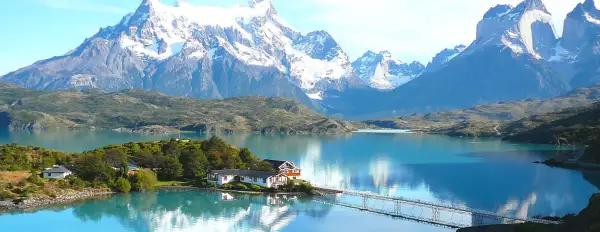Small Group Experiential Travel
Tour Code
AR1
Start
Buenos Aires (EZE)
End
Ushuaia (USH)
Tour type
Cultural
Max Group Size
18
When To Go
Feb, Nov
Activity Level
1 - Light
Overnight in
Buenos Aires, Ushuaia, El Calafate, Puerto Varas, Bariloche, Torres Del Paine
- Overview
- Info & Inclusions
- Itinerary
- Map & Hotels
- Photos
- Dates & Prices
Highlights
- Opulent Buenos Aires: "Paris of the South"
- Ushuaia - world's southernmost city
- Beagle Channel Cruise
- Perito Moreno & Uppsala Glaciers
- Ruggedly beautiful Patagonia
Description
Argentina & Chile Tour from Adventures Abroad: The incomparable Buenos Aires, Argentina's capital city, is our first destination on this tour and we enjoy a few days of exploring the sights of this dazzling metropolis that would alone warrant a trip to Argentina.
Known as "The Paris of South America," Buenos Aires combines European-style architecture, an astounding array and variety of attraction and a vibrant culture that takes second place to none.
We tour a multitude of cathedrals and fascinating historic landmarks, before getting closer to nature by visiting wildlife reserves and gazing in awe at the unrivalled natural beauty of glacial peaks en route to the world's southernmost city, Ushuaia.
Passing crystal lakes, deep fjords and lush forests, we make headway for the Beagle Channel, where we may board a vessel and take a short cruise. We stop off to wonder at the numerous glacial sights along the way.
Known as "The Paris of South America," Buenos Aires combines European-style architecture, an astounding array and variety of attraction and a vibrant culture that takes second place to none.
We tour a multitude of cathedrals and fascinating historic landmarks, before getting closer to nature by visiting wildlife reserves and gazing in awe at the unrivalled natural beauty of glacial peaks en route to the world's southernmost city, Ushuaia.
Passing crystal lakes, deep fjords and lush forests, we make headway for the Beagle Channel, where we may board a vessel and take a short cruise. We stop off to wonder at the numerous glacial sights along the way.
Price Includes
- Breakfast and most dinner (hotels & local restaurants) daily
- Some lunches. All transport, sightseeing and entrance fees for sites noted as 'visited' in the detailed itinerary. Gratuities for local guides, drivers, restaurant staff, porters. Domestic flights via local scheduled carriers as per the itinerary. Airport transfers for land & air customers arriving / departing on tour dates.
Exclusions
- International airfare to/from the tour. Tour Leader gratuities, lunches, drinks, personal items (phone, laundry, etc), international (if applicable) and domestic air taxes, visa fees, excursions referenced as 'optional'. Airport transfers for Land Only customers. Our post-reservation trip notes offer further guidance on optional meal costs and shopping.
Trip Info
- Seasonality and Weather:
Weather conditions can vary greatly from place to place. Most of our time is spent in the south where conditions can be very changeable at any time of year. We visit in the Austral summer (Nov-Mar), when Buenos Aires is hot and Patagonia is at its warmest. That said you must be prepared for windy, possibly rainy conditions. November and March tend to be less windy than mid-summer (Jan), which can also be busy in some locales. - Transport and Travel Conditions:
Ground transport by private air-conditioned motor coach, 24-36 seats depending on ultimate group size (see 'group size'). Though we will have some full bus days, roads are generally in good condition though a little winding on some stretches. Numerous optional walking opportunities and walking tours on uneven surfaces. Several internal flights via domestic carriers.
Our difficulty "Level 1" rating for this trip refers to the comfort of our transport and accommodation and the lack of physicality in terms of walking. That said, this is a busy program with lots of moving around and full days of travel and sightseeing. You must also be prepared for the possibility of some early starts, walks at various points of interest and some short walks to dinner. Our sightseeing in towns and cities, as well as national parks, are also conducted on foot at a leisurely pace. Though we try to minimize long road journeys by utilizing internal air connections, we still have some full days of travel. Related to air travel, you must be prepared to manage your own luggage at airports. This tour does not travel to any region considered "high altitude."
Am I suitable for this tour? Please refer to our self-assessment form - Accommodation:
Well-located, air-conditioned / heated, mid-range hotels and inns (3-star) used throughout. All hotels have en suite toilet and bath, though some may have shower only. Porter service is usually available (see 'inclusions') though you should be independent with your luggage, especially at airports. Single rooms are limited and likely smaller than twins. - Activity Level: 1
No particular physical activity is involved other than town/city walks and short walks to dinners and sites of interest, some of which are large.
To learn more about the Activity levels, please visit our tour styles page. - Staff and Support:
Tour Leader and local step-on guides, driver. - Group Size:
Maximum 18 plus Tour Leader
Download Itinerary
- Day 1:Arrival in Buenos AiresArrival in Buenos Aires.
Nearly 40% of the country's 33 million citizens live in Gran Buenos Aires (Greater Buenos Aires), which at first makes the city almost as imposing as New York or London. However, after a brief orientation, you will find that the compact city centre is accessible and easily explored on foot, by bus, taxi and underground.
Overnight in Buenos Aires.
Included Meal(s): Dinner - Day 2:Buenos Aires: City TourToday we see the sights of this cosmopolitan city. In the early part of the 20th century, Argentina was one of the richest countries in the world. The grand public buildings of Buenos Aires reflect this opulent era. The city is known as the "Paris of South America" because of its wide boulevards and European-style architecture. Buenos Aires was founded for the second time in 1580 by Juan de Garay, just north of Mendoza's encampment. In accordance with Spanish law, he laid out the large Plaza del Fuerte (Fortress Plaza). It acquired its present name of Plaza de Mayo after the month of revolution in 1810. Our tour focuses on the major public buildings.
Catedral Metropolitana, built on the sight of the original colonial church was not completed until 1827. Not only is it considered a major religious landmark, but also a historic site of great importance. Here lies the tomb of Jose de San Martin, the man who (along with Simon Bolivar) liberated South America from Spanish rule in the early 1800's. The Plaza de Mayo is also home to Museo del Cabildo, the Presidential Palace (Casa Rosada), and the National Congress (Palacio del Congreso).
We also visit the Recoleta Cemetery where Buenos Aires' richest citizens are buried in magnificent marble tombs elaborately decorated with statues. The most internationally-famous person buried here is "Evita" Peron. While in BA, we will also visit La Boca neighbourhood, so named for its position at "the mouth" of the Riachuelo, and its role as the port of call for thousands of immigrants from Italy, Spain, and other European countries. Those settlers struggled, starved, hoped, and celebrated in this rough-and-tumble barrio. Today, one of the most photogenic and colourful parts of Buenos Aires, La Boca is the domain of the working class, bohemian artists, rabid soccer fans, and tango artists.
Ask your Tour Leader about the possibility of seeing an optional Tango Show this evening.
Overnight in Buenos Aires.
Included Meal(s): Breakfast and Dinner - Day 3:Buenos Aires: ContinuedToday we have a half-day WALKING tour.
Our first stop is the Centro Naval, one of the city's most exquisite buildings and a masterpiece of cast stone architecture. It's not generally open to the public, but sometimes they let you into the circular lobby.
The Kavanagh Building, at the time of its construction in 1936, was the tallest building in South America, standing at about 120 m (400 ft) with over 30 stories. Designed as a residential structure, it took more than 16 years to sell the apartments in this Art Deco building.
Palacio Paz is perhaps the most beautiful of the Beaux Arts mansions in Buenos Aires; the Circulo Militar looks plucked from the Loire Valley. It was the home of the Paz family and took almost 12 years to build; the patriarch who commissioned it died waiting.
The General Jose de San Martin Monument celebrates General Jose de San Martin, who battled against Spain in the wars of independence and is known as the founder of the Argentine nation. The Palacio San Martin is another of the grand mansions that line Plaza San Martin, this was the home of the powerful Anchorenas family whose prestige dated to colonial times in Argentina. The Islas Malvinas-Falkland Islands Memorial honors the more than 700 Argentines who died in the war over the Islas Malvinas/Falkland Islands chain in the brief war with Great Britain in early 1982.
The Torre Monumental (British Clock Tower) is a 1916 gift from the British community in Buenos Aires, along with all other things British, was renamed in response to the Islas Malvinas/Falkland Islands War and is called the Argentine Big Ben by some. Decorated with British royal imperial symbols, the base was partly destroyed by an angry mob during an Islas Malvinas-Falkland Islands memorial service. Inside the tower you'll find a small Buenos Aires City Tourism Information Office.
Retiro Station was opened in 1915 and was built with British technological assistance. Four British architects designed it, and the steel structure was made in Liverpool, England, and shipped to Argentina to be assembled.
Our tour ends in the Galerias Pacifico in time for your lunch break. This is the most famous shopping mall in Buenos Aires, opened in 1891. The building was designed to recall the Galleria Vittorio Emanuele II in Milan, with its long halls, glass cupola, and several tiers of shops.
Overnight in Buenos Aires.
Included Meal(s): Breakfast and Dinner - Day 4:Buenos Aires - Fly to BarilocheA direct flight from Buenos Aires brings us to Bariloche, located in the heart of the Lake District. The Nahuel Huapi National Park extends over 750,000 hectares, of which 330,000 is a National Reserve. Situated in the southwest of Neuquen Province and northwest of Rio Negro, it stretches from the Patagonian steppes to the high Andes. On account of abundant rainfall and summer melt from snowfields and glaciers, there is a great number of lakes and also rivers that flow either to the Atlantic or the Pacific oceans. Lake Nahuel Huapi, covering an area of 60,000 hectares, is the largest in the area.
This afternoon we visit the Francisco P. Moreno Patagonian Museum, inaugurated by National Parks in 1940. It is named after the famous explorer of the Andes and the Patagonian rivers, who donated the lands that were later transformed by the government into the first national park in Argentina. It has halls specializing in natural science, ethnography, pre-history and local and regional history. It also has a library and a bookstore.
Bariloche has a very strong Central European influence; most of the first settlers were of Swiss, German, or Northern Italian origin. These people gave the city its European style, with Swiss chalets, ceramics, chocolates, and neat shop windows. However something tells you that you are not in Europe; boats are seldom seen in the huge Nahuel Huapi Lake, the roads are swallowed up in the wilderness as soon as they leave the city and at night, there are no lights on the opposite shore of the lake.
You will have time to explore the lakeside and to visit Bariloche town with it's chocolate shops and excellent visitors' centre.
Overnight in the Bariloche area.
Included Meal(s): Breakfast and Dinner - Day 5:Bariloche Area: Small CircuitToday we have the classic half-day tour of the Bariloche region. We will get a general overview of the surrounding area along a 60 Km (40 mi) partial loop excursion, all on a paved road. Our outing heads westward from Bariloche on the highway to Llao Llao along the southern shore of Lake Nahuel Huapi. At Km 8, the road passes Playa Bonita, a small harbour and popular beach. Cerro Campanario, the Belltower Hill, is at Km 18 (mile 12), where our bus may stop on the outward leg or when returning. The view from the top of this hill, reached after a seven minute chairlift ride, is the highlight of the trip. The Catedral Ski Village, at the base of the ski slopes, and part of the city of Bariloche, are visible from this spectacular 360 degree look-out.
The tour continues toward St Eduard's chapel and the Llao Llao Hotel. It is after passing the hotel's golf course, at the 100 inch yearly rainfall boundary, that the Valdivian Rain Forest begins. This is a temperate rain forest, with vines canes and lush vegetation. Our tour continues through a thick beech forest surrounding the western Moreno Lake passing by the base of Lopez Mountain, a sheer 3650 m (12,000 ft) face of rock.
We'll have a short stop further along the road for a breathtaking view high above Moreno Lake, the Puerto Panuelo Harbour, Victoria Island and smaller islands on the lake. On the return trip, the road crosses the bridge between the Moreno lakes and then joins the main road back to Bariloche.
Overnight in the Bariloche area.
Included Meal(s): Breakfast and Dinner - Day 6:Bariloche, Argentina - Lake Crossing - Puerto Varas, ChileThe Andean Lakes Crossing is the most scenic way to travel from Argentina to Chile. This spectacular crossing of the Andes takes us through lakes and mountain passes from Bariloche
to Puerto Varas, and occurs in a very well-orchestrated combination of boat and bus. Our luggage is handled for us -- you just sit back and enjoy the scenery.
After breakfast we leave by bus to Puerto Panuelo, where we will board the ship to navigate to the Puerto Blest Port, where we will arrive at 11:30. From there we will travel by bus to the Puerto Alegre Port at 13:30 where we will embark to navigate further. We then board a bus that will take us across the border to Chile at an altitude of only 976 m (3,200 ft); we continue on to Peula from which we embark towards Petrohue, sailing on the Lago Todos los Santos. Weather-permitting, we will have views of the Osorno Volcano, and the mountains, Puntiagudo and Tronador. Imposing views of the volcano Volcan Osorno y Calbuco dominate the landscape. A simple boxed lunch is provided today.
At +/- 19:30 we arrive in Puerto Varas, the City of Flowers (due to our late check-in, dinner on your own this evening).
Overnight in Puerto Varas.
Included Meal(s): Breakfast and Lunch - Day 7:Puerto Varas - Fly to Punta Arenas - Torres del PaineToday we fly to Punta Arenas and continue by road to Torres del Paine National Park, a full day of travel.
The Torres del Paine (Towers of Paine) are spectacular granite pillars which soar almost
vertically more than 2000 m (6,000 feet) above the Patagonian landscape. The park in which the high peaks sit may be considered the finest national park in all of South America. With turquoise lakes, roaring waterfalls, rivers and creeks, dense forests and sprawling glaciers, this is an unequalled destination.
Overnight at Torres del Paine.
Included Meal(s): Breakfast and Dinner - Day 8:Torres del Paine National ParkToday we spend the entire day at Torres del Paine National Park.
Some say "Paine" come from the name of an early settler. Others say the name comes from an ancient Indigenous word meaning blue -- hearkening to the intense blue of the area's lakes. Whatever the name comes from or means, this is a spectacular park, comparable to Yellowstone or Yosemite in the US. Founded in 1959, Torres del Paine takes in 180,000 ha (450,000 acres). In 1978 UNESCO gave the park World Heritage status, recognizing it as a biosphere especially worthy of international recognition.
The park is part of the Paine Massif, which lies east of the high central Andean spine. These medium high mountains emerge suddenly from the plains of the Patagonian steppes. The mountains are granite, capped by crumbly sedimentary rock that used to lie on the valley floor. Before the park was acquired by the Chilean government, it belonged to ranchers who overgrazed and also burned down forests to increase pasture area.
The park is still recovering from this devastation, but it's a chance to see what nature can do to fix itself if given a chance. The glaciers of the park are in quick retreat -- up to 17 m (56 ft) a year for the last 90 years, creating a fascinating study of plant succession and soil build-up from bare rock to forest. The flora of the park ranges from grassland to southern beech forests. Many parts of the park were too remote for the cattle ranchers and exist today in a pristine state.
The animal stars of the park are the guanacos and the rheas. Rheas are an ostrich-like bird; guanacos are wild South American cameloids, related to the domesticated llama and alpaca. Native peoples hunted both across the plains, using every part for food and sheltering hide and feathers. When the Europeans came, the guanaco were slaughtered to make way for cattle, and almost became extinct.
We will travel through the park in our coach stopping at various points of interest and scenic viewpoints. We will also have an opportunity to walk one of the many easy-going trails that afford expansive views of the mountains, glaciers, and waterfalls for which Patagonia is famous.
Overnight at Torres del Paine.
Included Meal(s): Breakfast and Dinner - Day 9:Torres del Paine, Chile - Calafate, ArgentinaToday we travel by road to El Calafate, a resort town on Lake Argentino situated at the entrance to Los Glaciares National Park.
Named after a berry that grows in the area, the town of El Calafate was formerly a trading post for local ranchers, but in recent years tourism has spurred rapid growth. The centre of town and the lively main street Avenida del Libertador are lined with trees and a variety of trendy shops (try the calafate berry ice cream), restaurants, and bars.
This pleasant and colourful town will be our comfortable base for our glacier viewing in the area.
Overnight in Calafate.
Included Meal(s): Breakfast and Dinner - Day 10:Calafate: Lago Argentina Glacier CruiseToday we explore the glaciers, mountains, forests and lakes of Los Glaciares National Park on board a luxury cruise boat. We spend a full day relaxing on a stylish watercraft, taking in views of the Patagonian ice field. This morning we transfer the pier to join our cruise, which offers the best opportunity to visit the Spegazzini, Upsala, and the Perito Moreno glaciers in an intimate way.
We cruise out of the Upsala Channel toward the iceberg barrier, then to the largest glacier in the park; the Spegazzini Glacier. Continue to Puesto de las Vacas, where we will disembark and take a short guided walk through the icefields. During our journey, admire dramatic views and enjoy spectacular photo ops of the natural surroundings, including forests, glaciers, icefields, bays, and steppes.
We will then navigate toward Punta Avellaneda and Boca del Diablo to reach the Canal Spegazzini to see the glacier that bears the same name. The cruise will arrive at Puesto de Las Vacas (an extremely quiet bay in the Canal Spegazzini), where we can enjoy a guided walk with stunning panoramic views of the Spegazzini Glacier.
We continue toward Herminita Peninsula; the series of ice floes of the most varied colours and shapes, anticipates the proximity of Upsala Glacier. We will stop in front of the barrier of ice floes which at present is blocking the entrance to Canal Upsala. If the weather conditions are good we will observe the glaciers at a distance.
We continue to Canal de los Tempano to finally reach Perito Moreno Glacier. Huge icebergs on the glacier's 60 m (180 foot) high face calve and collapse into the Canal de los Tempanos as it advances about 100 m (300 feet) a year. The roar of the gigantic ice wall as it crashes into the surrounding channel is an unforgettable experience.
We'll be dropped off near the glacier where we can view it from land on a series of scenic boardwalks. We then return to Calafate by road.
NOTE: Though weather may seem fine in Calafate, the weather on the water and near the glaciers can be completely different. You should be prepared with layered clothing and a warm hat.
Late afternoon we return to Calafate.
Overnight in Calafate.
Included Meal(s): Breakfast and Dinner - Day 11:Calafate - Fly to UshuaiaToday we fly to Ushuaia on the island of Tierra del Fuego.
Ushuaia is considered the world's southernmost city. In 1520, Magellan passed through the strait that now bears his name, in search of a sea route to the spice islands of Asia. The Yahgan Indians built the fires that inspired Europeans to give this region its name -- "The Land of Fire". At first, very little attention was paid to this rocky and glacial shoreline, and its indigenous Indian population. It was not until the demise of Spain's colonial domination of the region in the late 1800's, that other Europeans began settling here. Since 1950, the town has played host to an important naval base, supporting Argentine claims in Antarctica. In 1870, the South American Missionary Society, a British-based organisation, made Ushuaia its first permanent outpost in the Fuego region.
You will have time to discover this interesting town. We suggest a visit to the old prison of Ushuaia located within the confines of the naval base. The penitentiary was constructed by the prisoners themselves between 1902 and 1920. Now this impressive complex houses the Antarctic Museum, the maritime museum, a modern art gallery as well as a restored wing of the prison, complete with cells inhabited by some of the infamous prisoners.
Overnight in Ushuaia.
Included Meal(s): Breakfast and Dinner - Day 12:Tierra del Fuego National ParkIf you are looking to connect with nature and the history of the southernmost city in the world, Tierra del Fuego National Park is the ideal place to do it.
The park protects 68,909 hectares and is the only one in Argentina that combines marine, forest and mountain environments giving shape to the sea coast, lakes, valleys, extensive peat bogs and magnificent forests dominated by trees such as lengas, guindos and ñires. All these environments form a unique scenery with the purest air you can breathe. Here you will find exuberant and diverse landscapes, inhabited by birds such as the picturesque cauquén marino, the steamer duck or the black-browed albatross. As you walk along the trails it is normal to come across grey and red foxes, and to hear the "tac, tac, tac" of a Magellanic woodpecker.
This place also features the history of the Yámanas, the first inhabitants of these lands. Paying attention, you can find mounds of mussel shells, known as "concheros" or shell middens that remind us that these lands have been inhabited for more than 10,000 years.
Our drive to the national park is short and scenic. We’ll pass the world’s southernmost golf course and make a stop at Escondido beach and its famous post office, where you can purchase postcards/stamps and send them on their long way homeward. At Lapatoia Bay we reach the southern end of the Pan-American Highway, which starts in Alaska and runs all the way down through Canada, the USA, Central and South America.
We’ll also stop at Lago Roca (Lake Acigami), the main freshwater body of Tierra del Fuego National Park, which extends through Argentine and Chilean territory. We’ll enjoy a nice easy walk along the shore, ending up at the Alakush Visitor Center, which features a restaurant, gift shop, and an interpretive room with information about the park and the first inhabitants who resided on the island.
Overnight in Ushuaia.
Included Meal(s): Breakfast and Dinner - Day 13:Ushuaia: Beagle Channel CruiseToday, weather-permitting, we include a cruise on the Beagle Channel. Running through the Tierra del Fuego archipelago, the Beagle Channel is a scenic and wonderfully calm strait named in 1830 after a charting voyage by the HMS Beagle—the ship that later became famous for carrying English evolutionalry biologist Charles Darwin on his five-year journey of discovery. The island of Tierra del Fuego is divided between Argentina and Chile and the Beagle Channel forms part of the border between the two countries.
In addition to spectacular scenery, we should see many species of marine mammals and birds, including a penguin colony -- the actual presence of penuins can rely on seasonality and recent conditions -- so no promises!
Later you'll have time to discover this interesting town. We suggest a visit to the old prison of Ushuaia located within the confines of the naval base. The penitentiary was constructed by the prisoners themselves between 1902 and 1920. Now this impressive complex houses the Antarctic Museum, the maritime museum, a modern art gallery as well as a restored wing of the prison, complete with cells inhabited by some of the infamous prisoners.
Overnight in Ushuaia.
Included Meal(s): Breakfast and Dinner - Day 14:DepartureDeparture from Ushuaia.
BUEN VIAJE!
Included Meal(s): Breakfast
Regions Visited: South America
Countries Visited: Argentina and Chile
Countries Visited: Argentina and Chile
*The red tour trail on the map does not represent the actual travel path.
The following is a list of sample hotels at some locations included on this tour. The hotels shown here are meant to provide a general sense of the standard of hotel we usually aim for; they are not necessarily confirmed for your chosen departure.
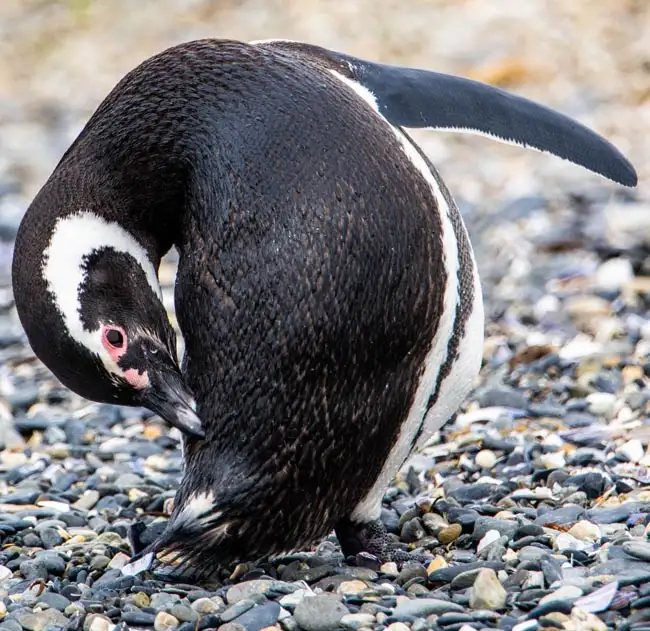
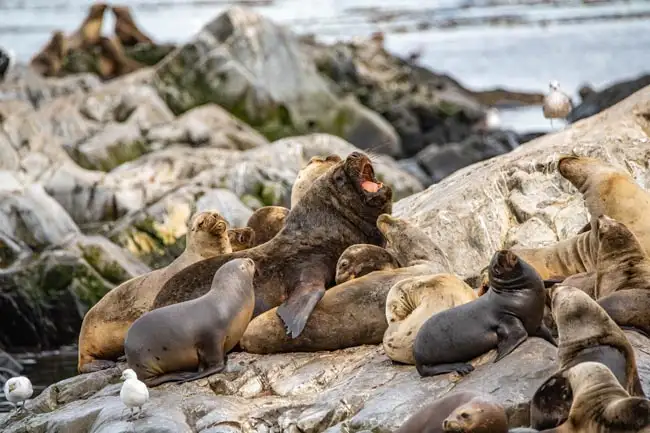

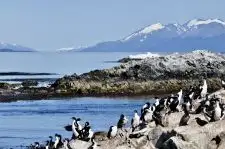
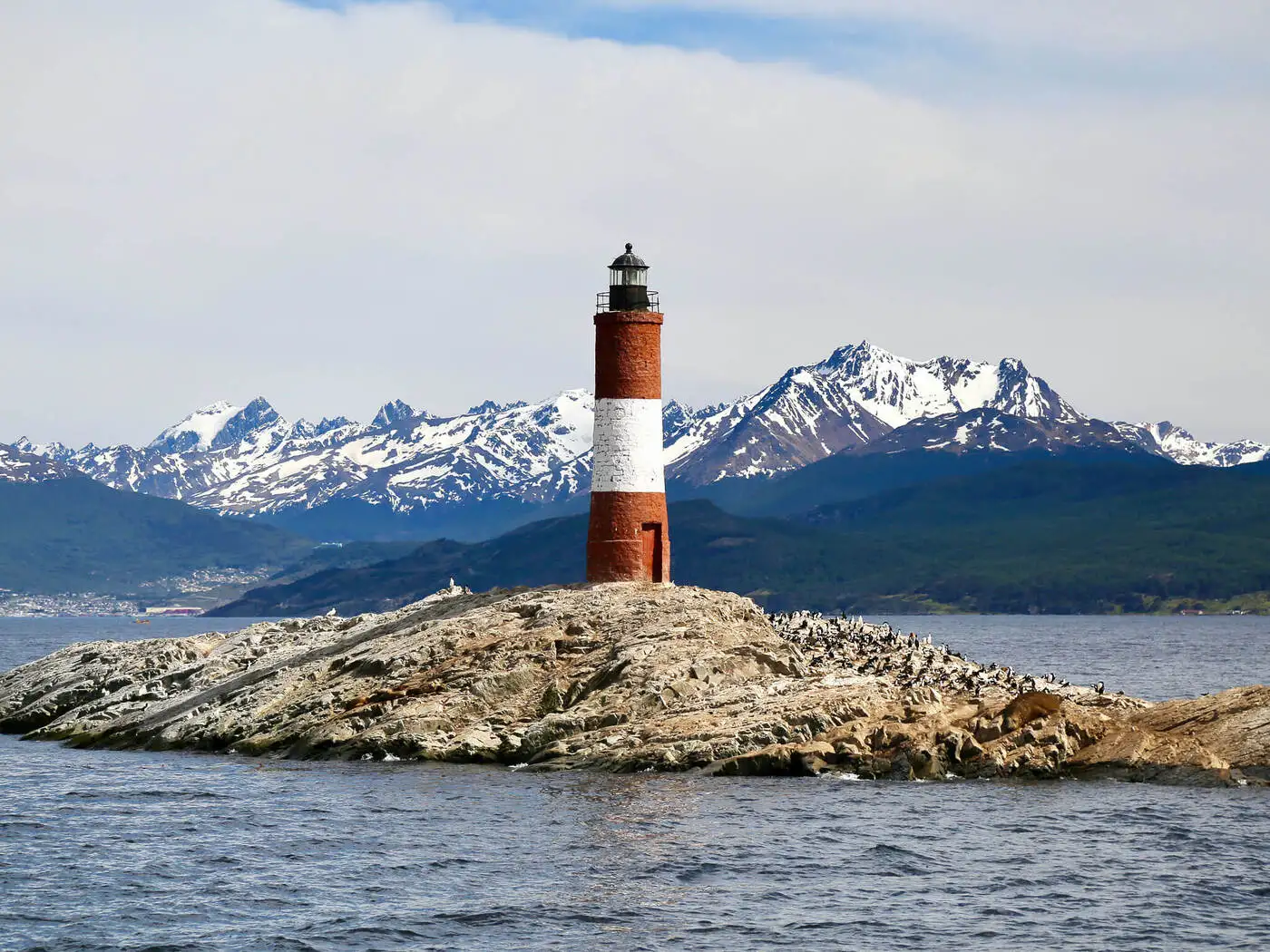
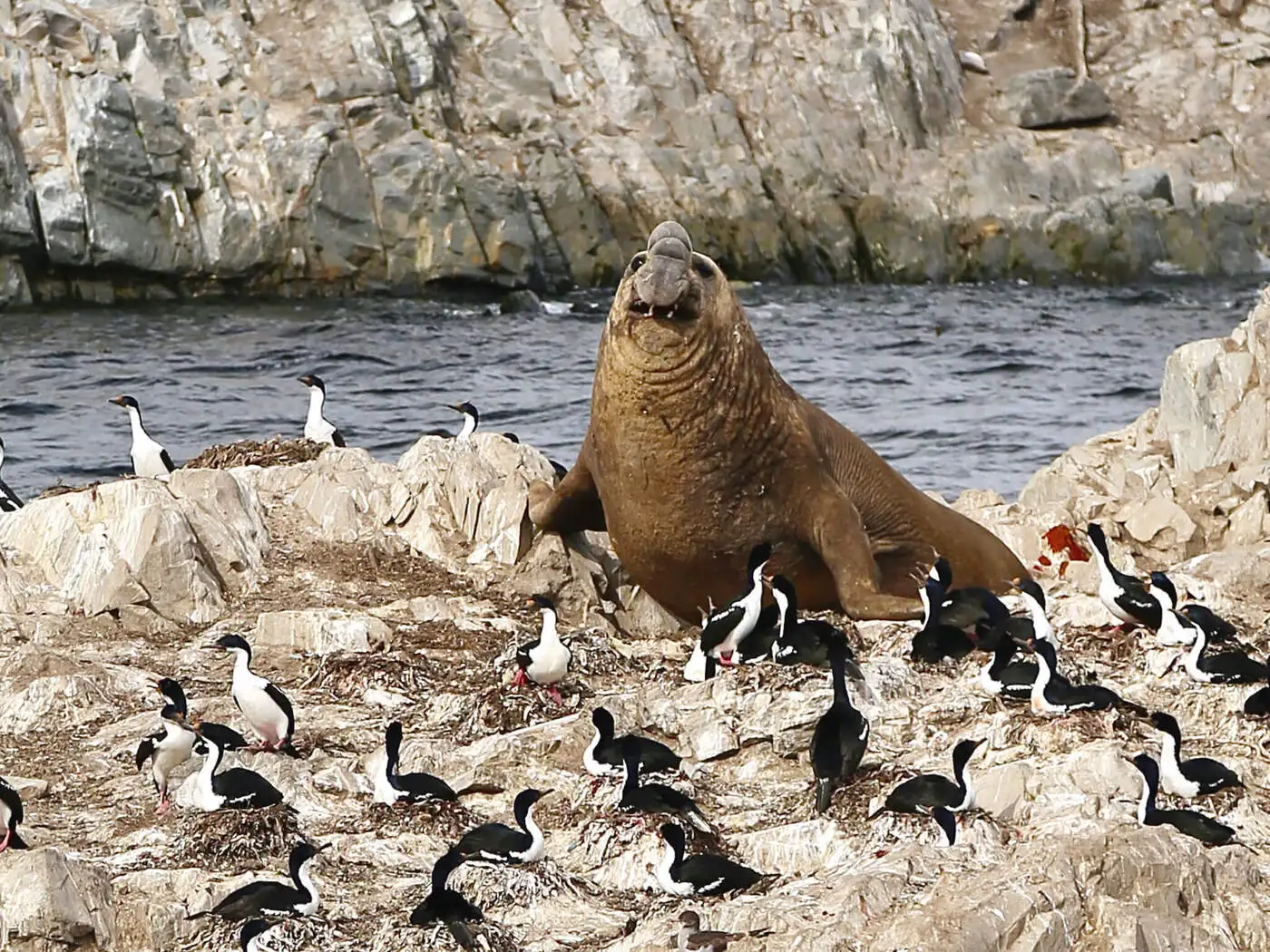
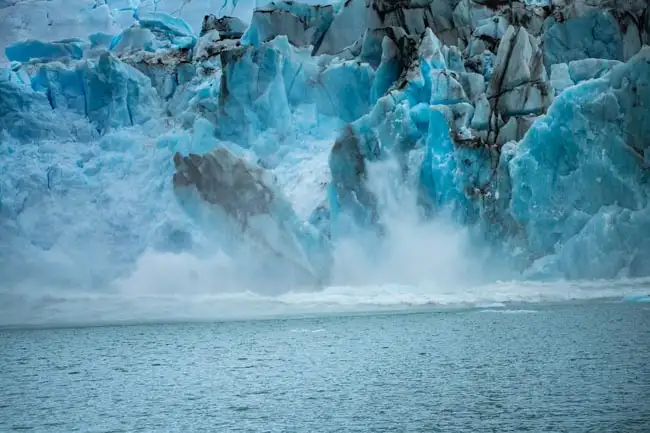

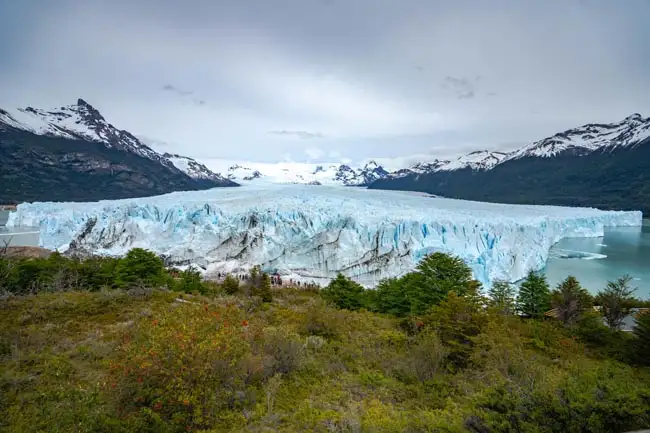
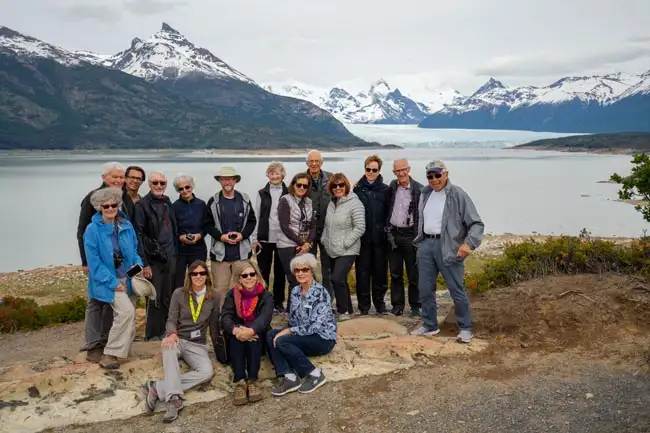
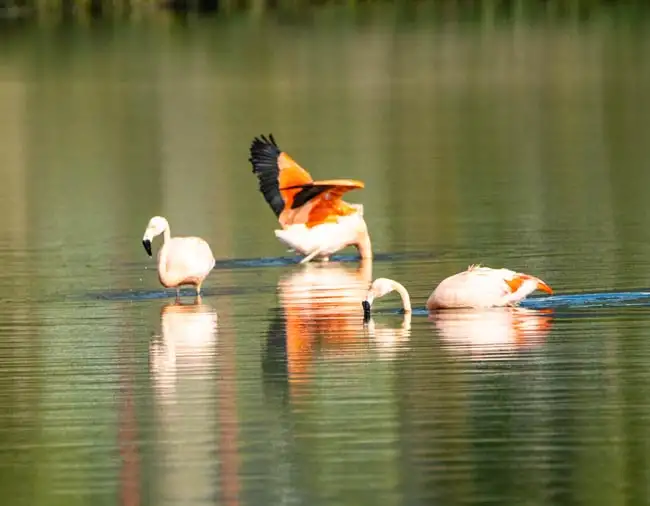
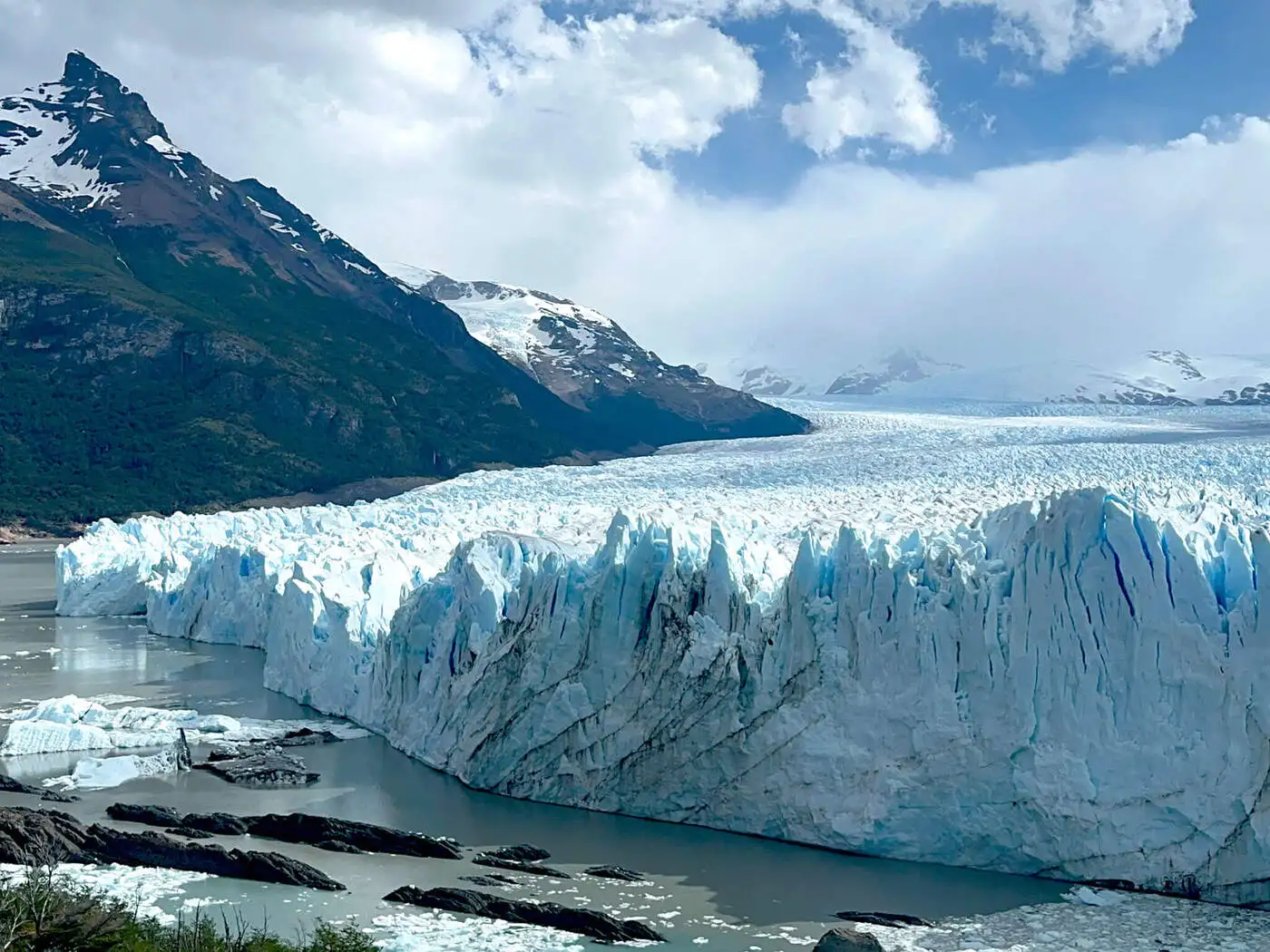
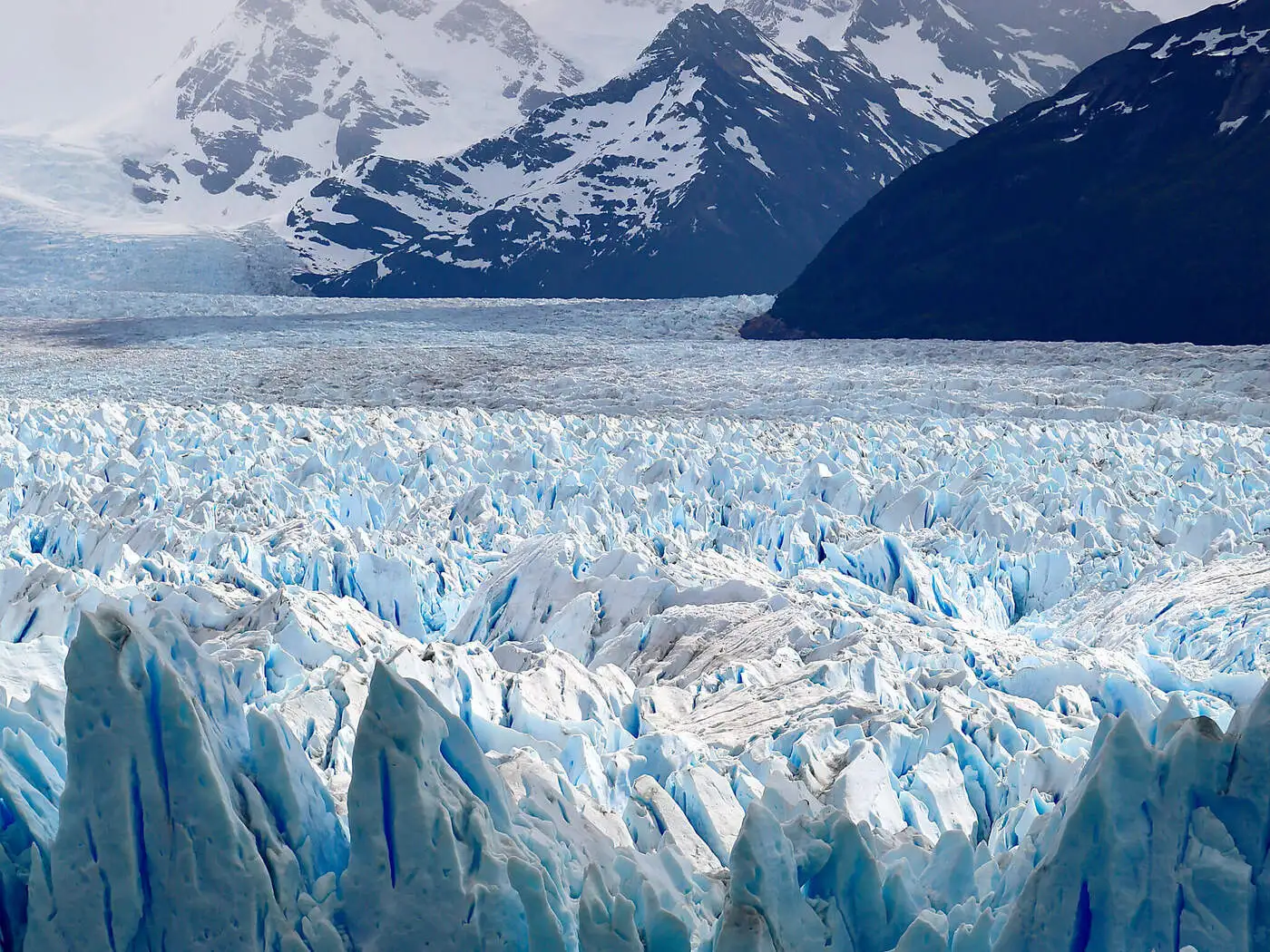
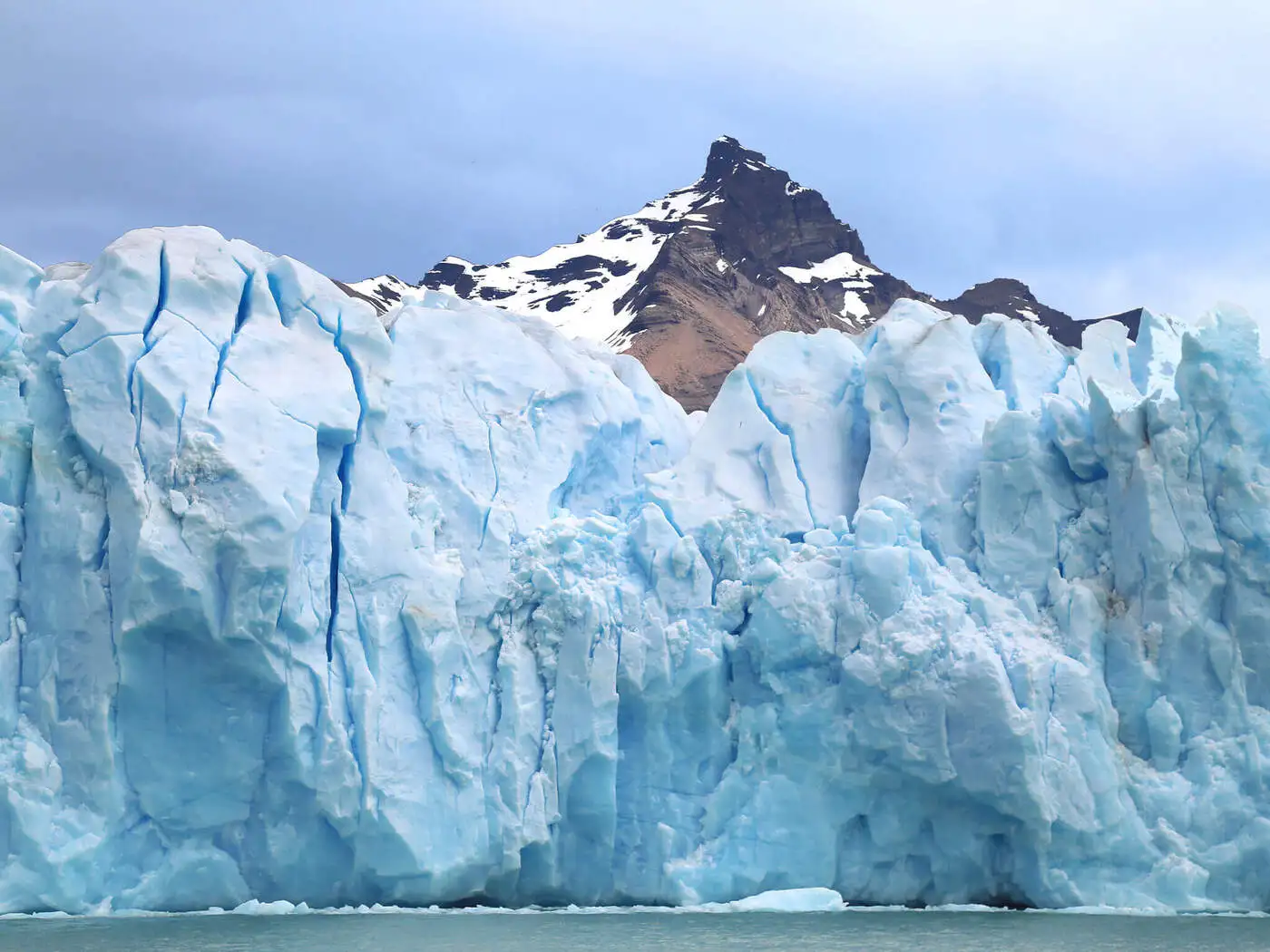
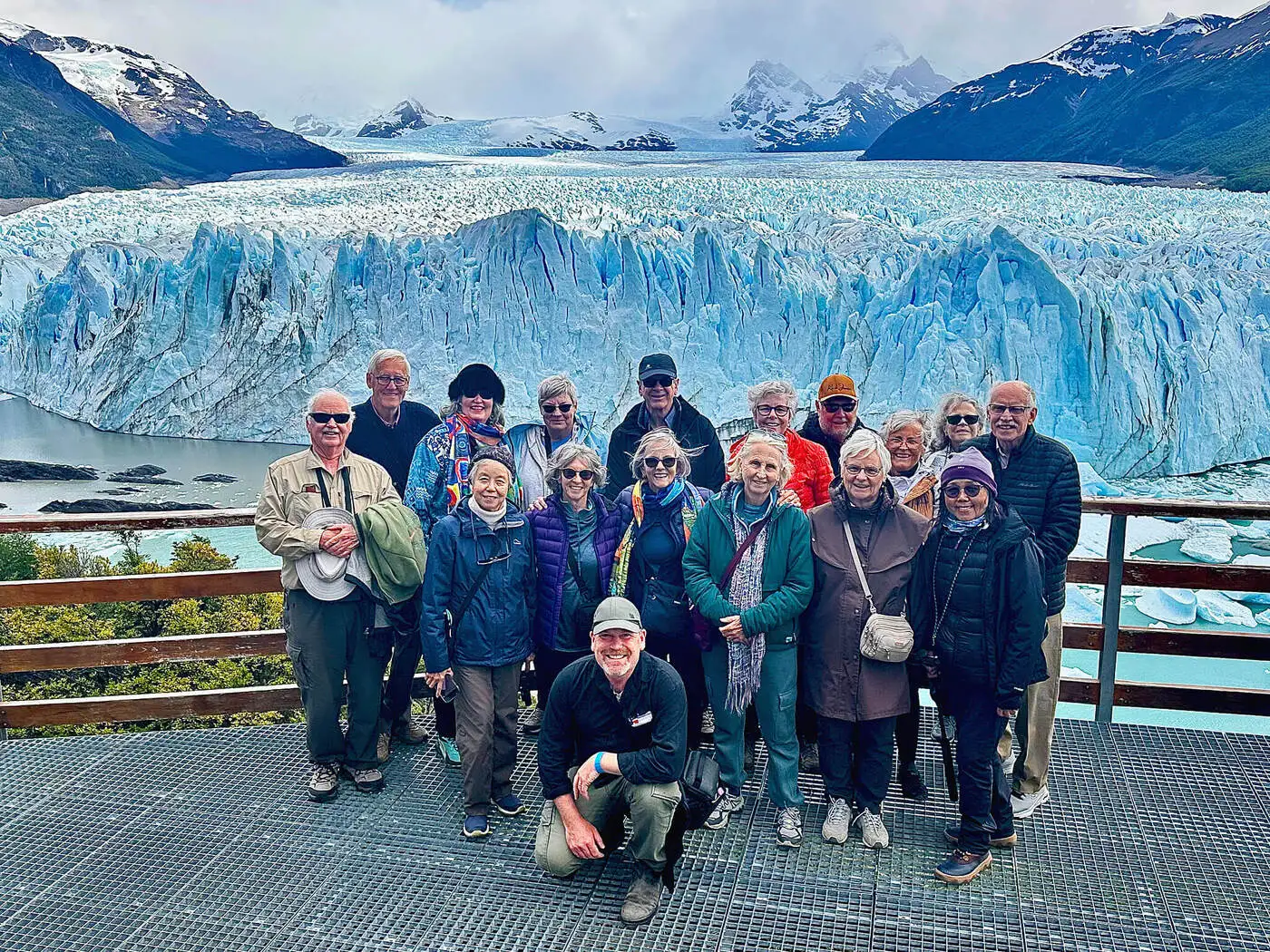
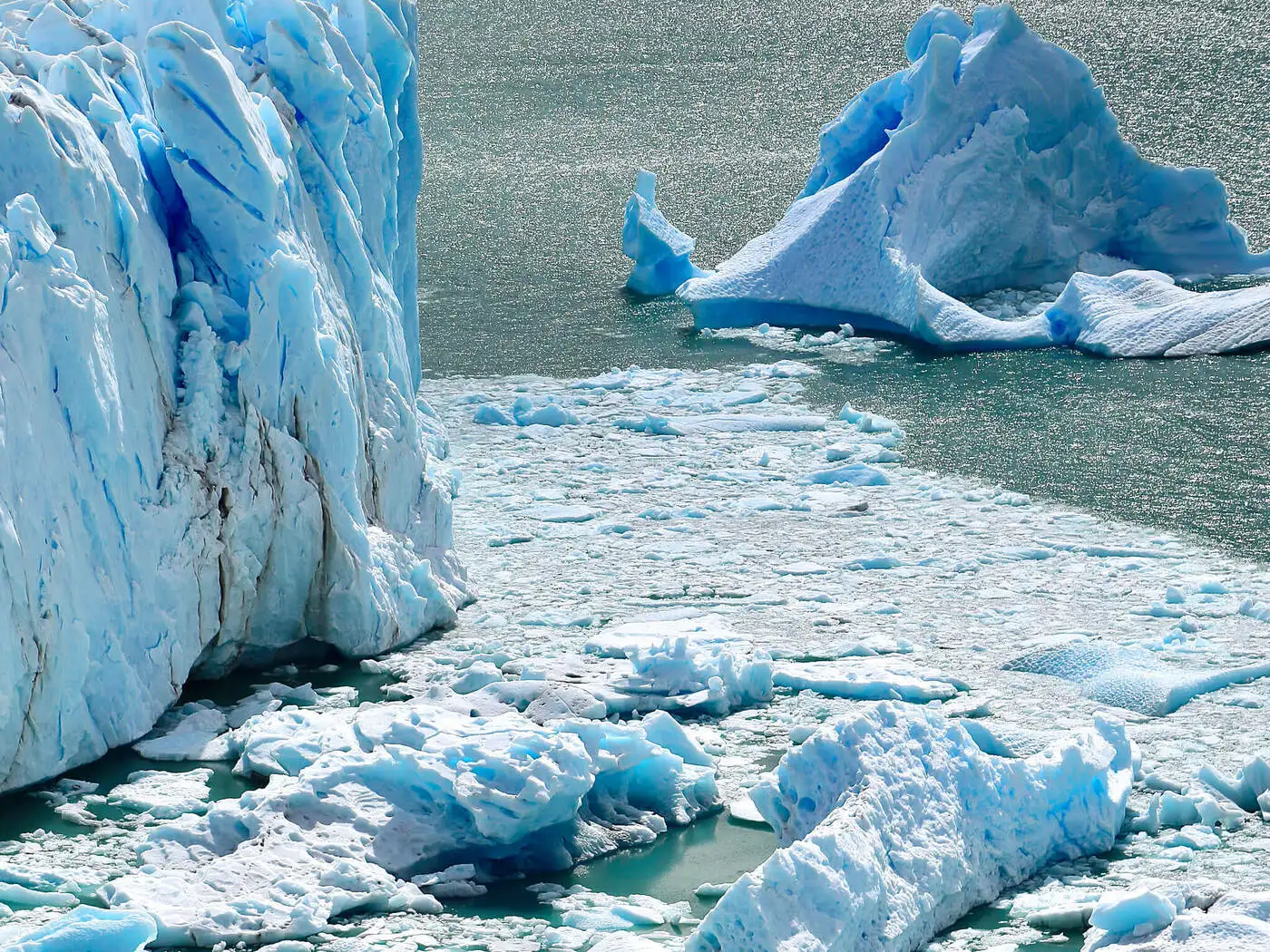
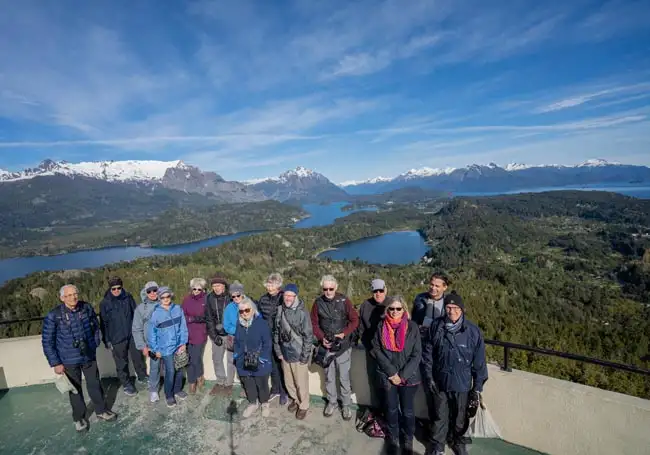
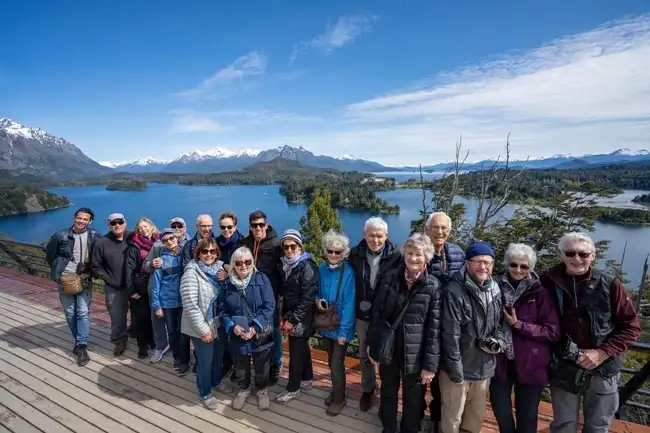
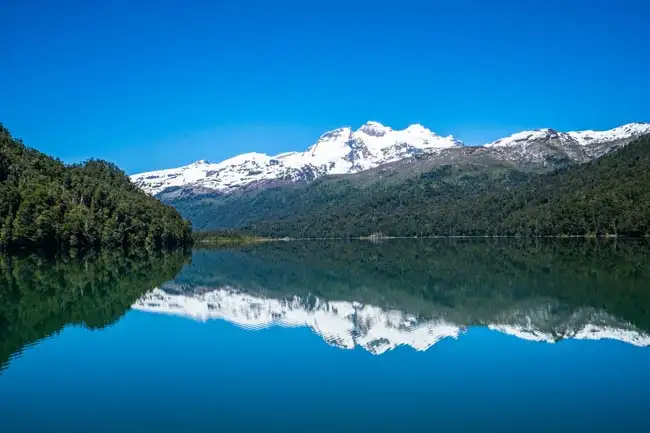
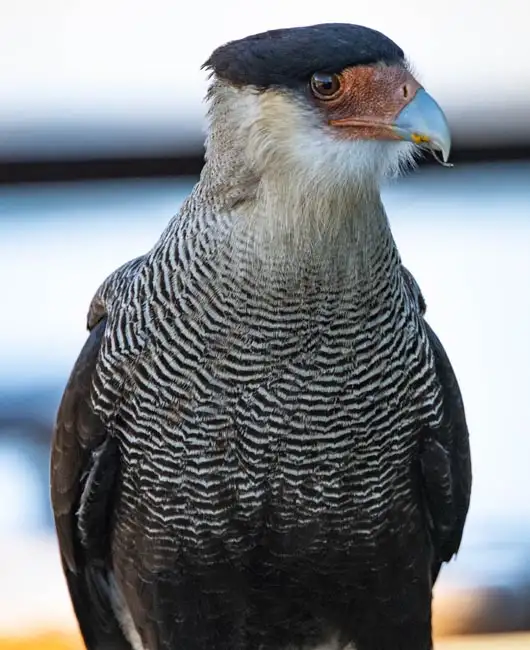
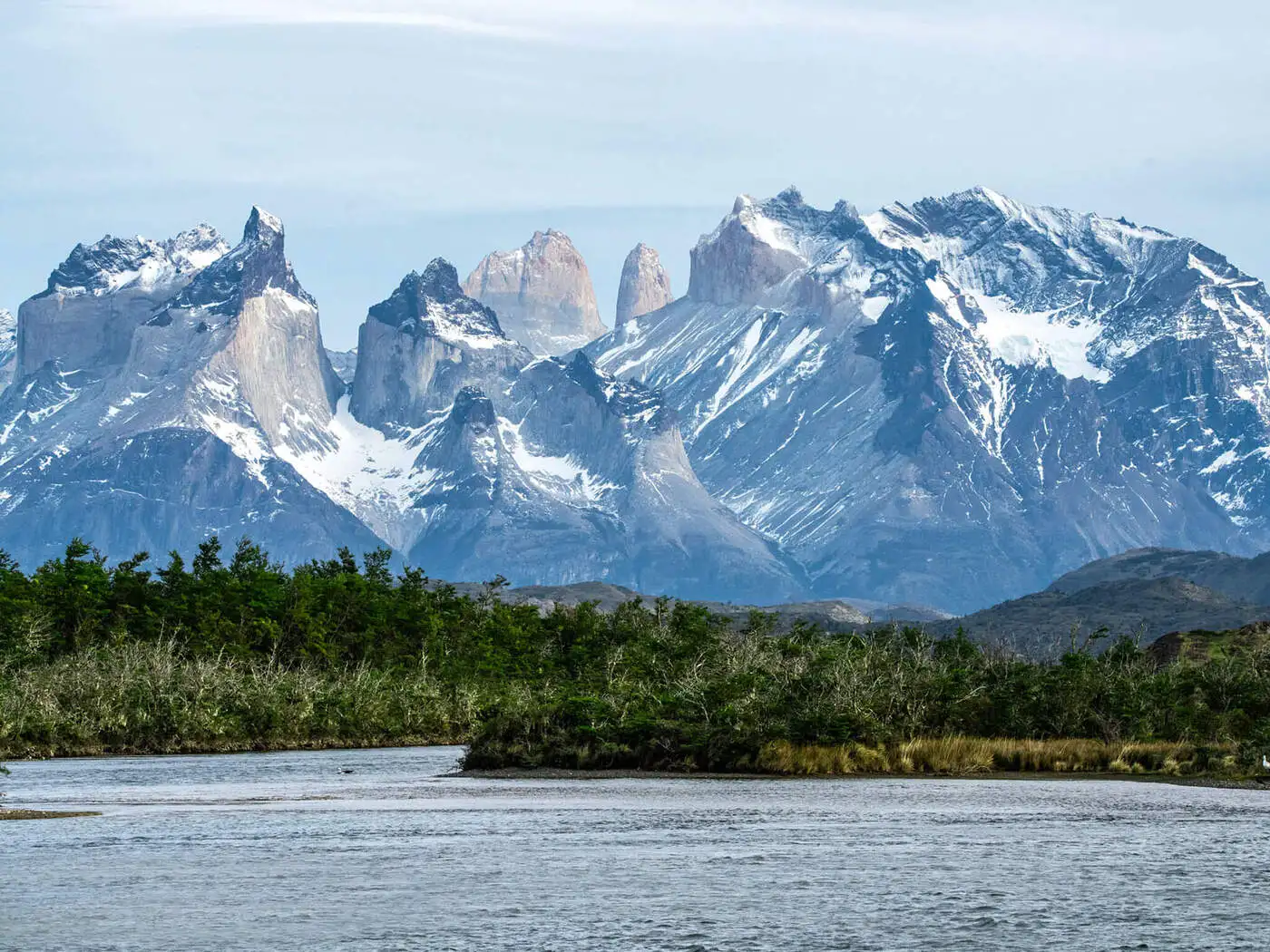
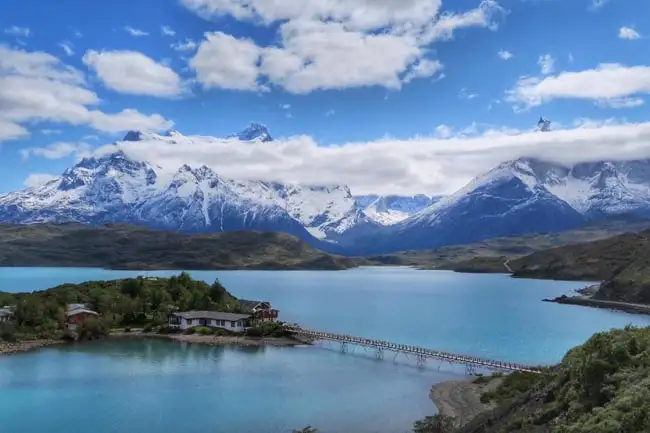
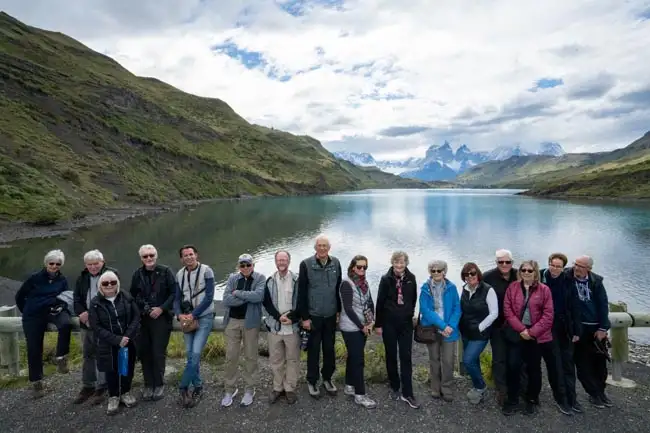
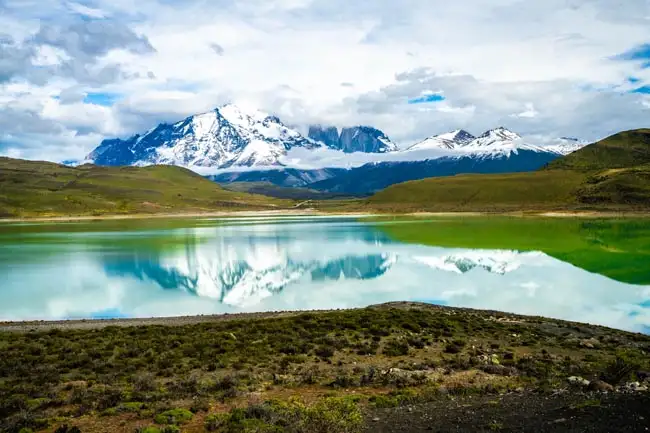
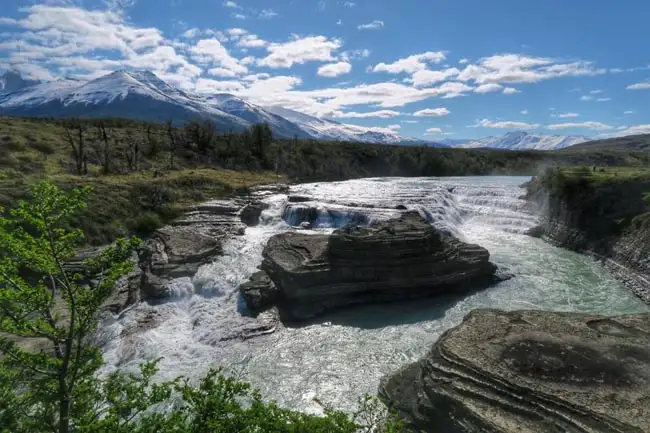
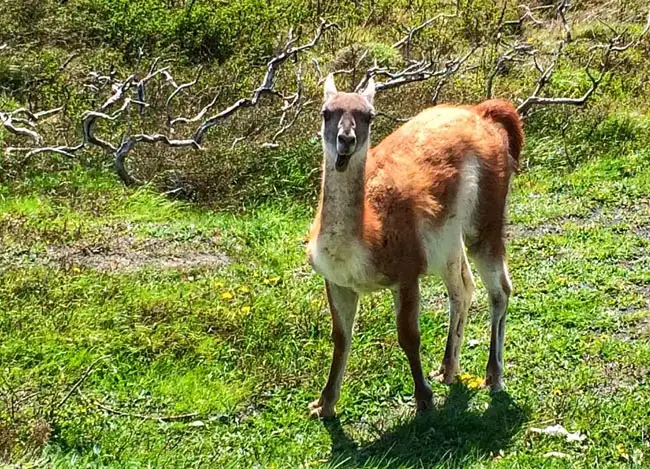
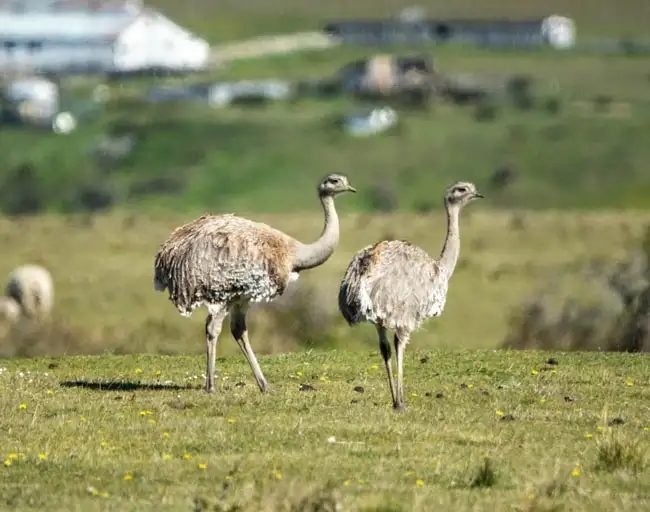

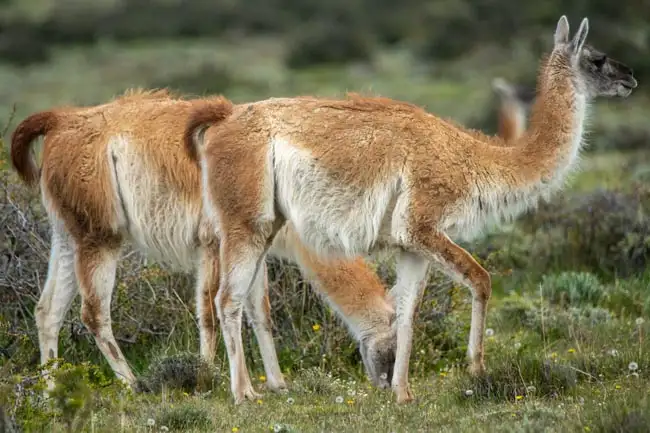
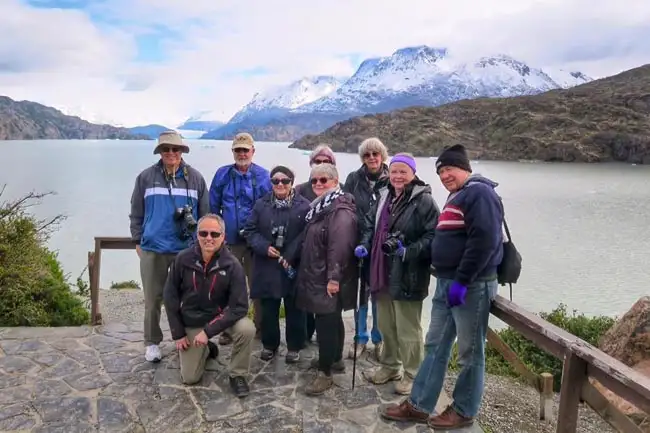
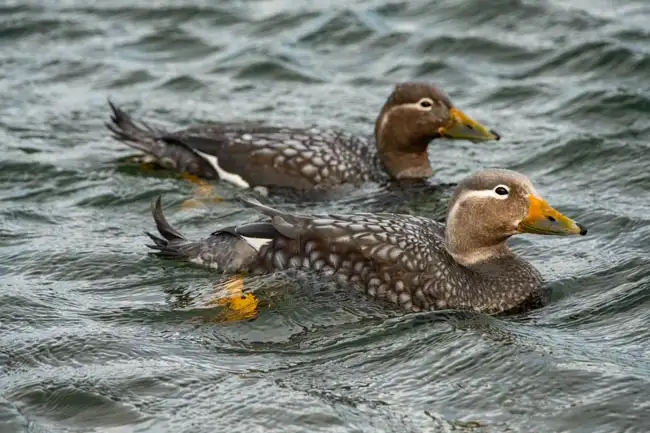
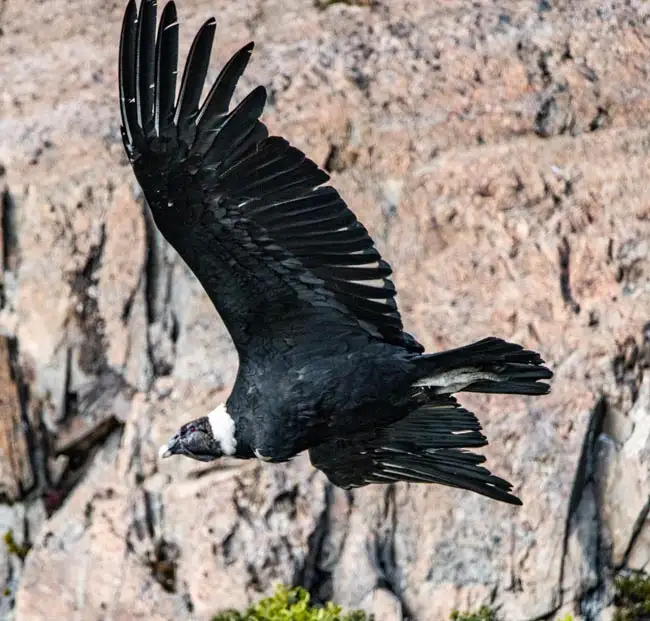
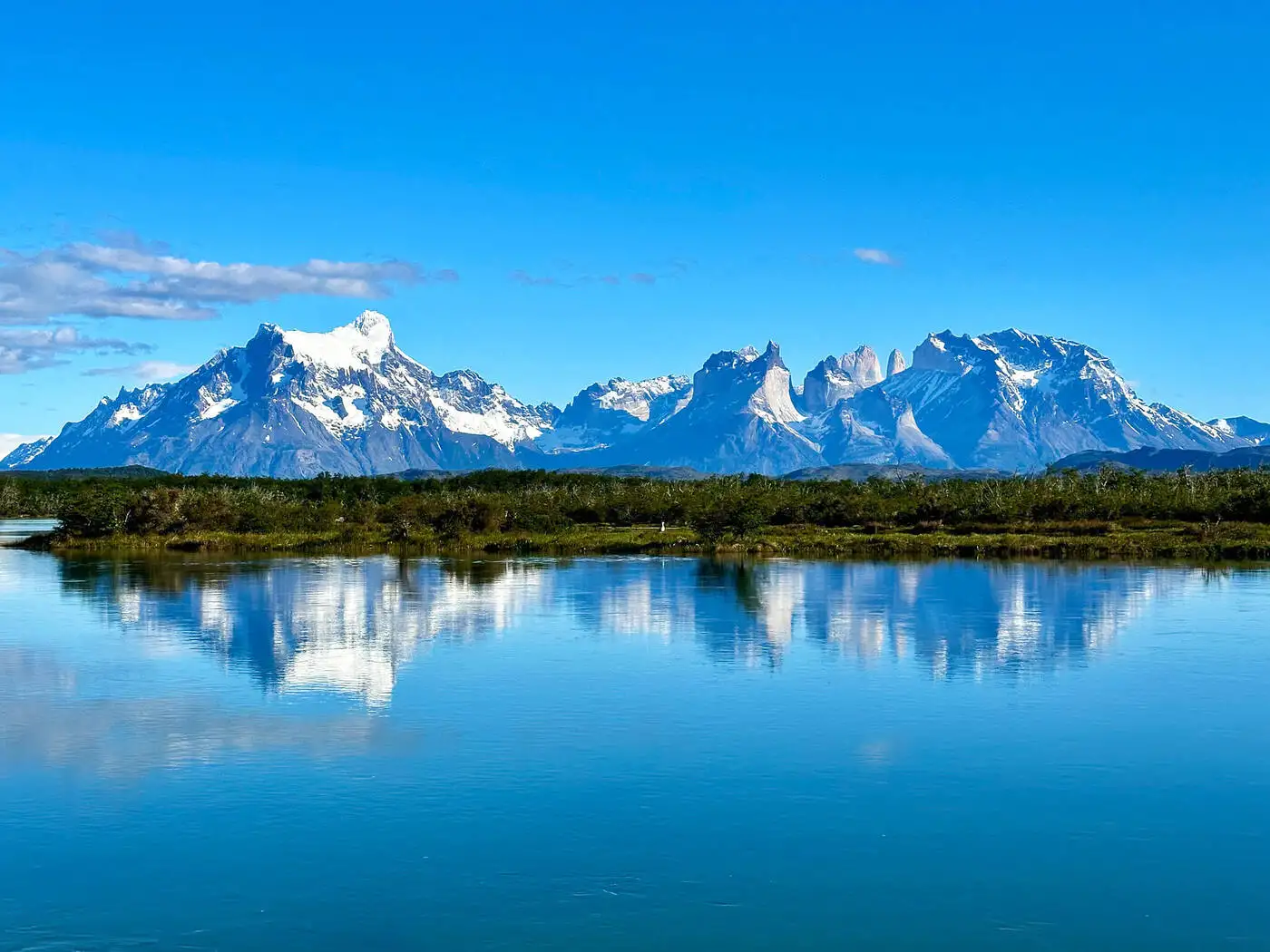
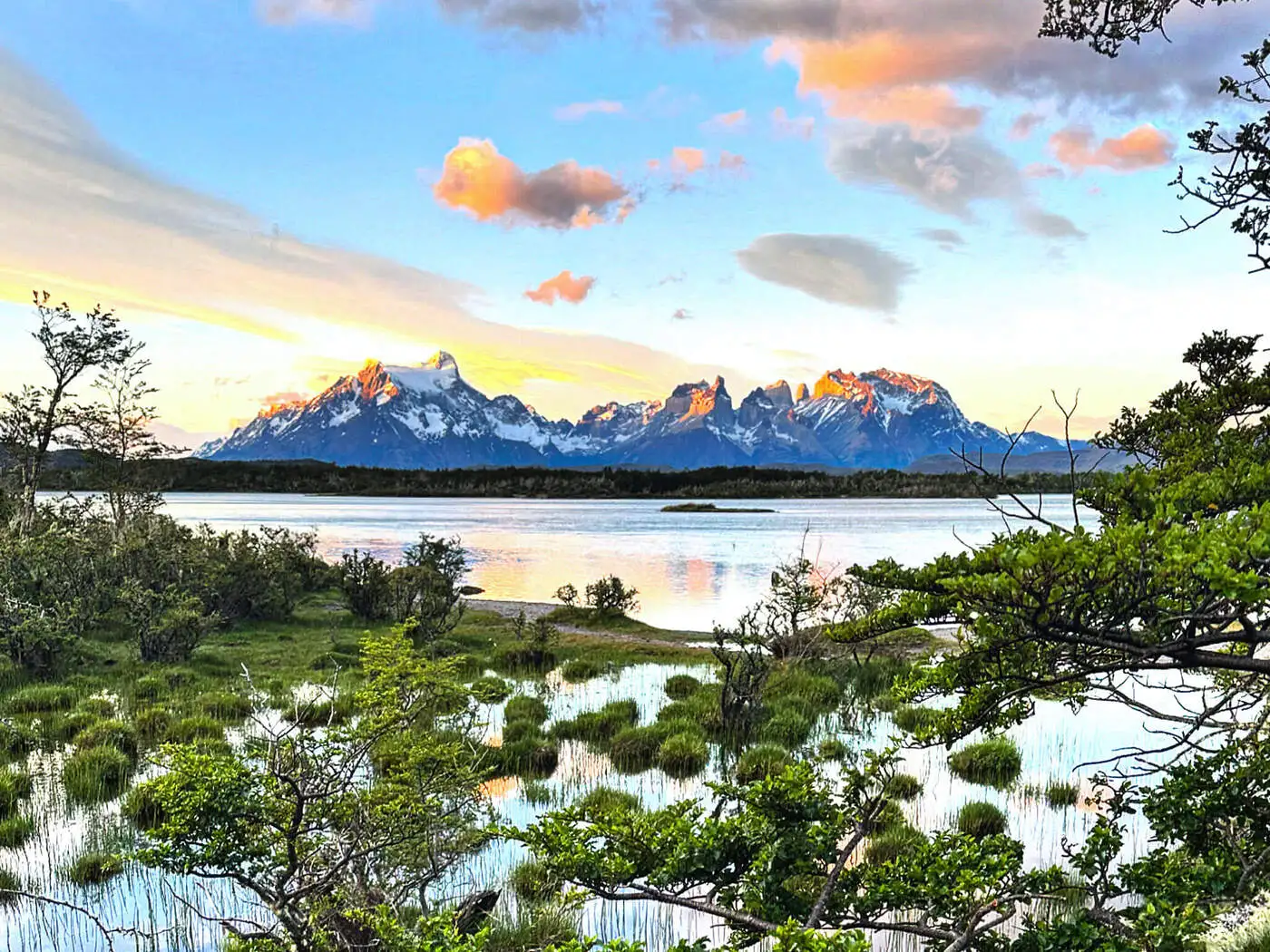
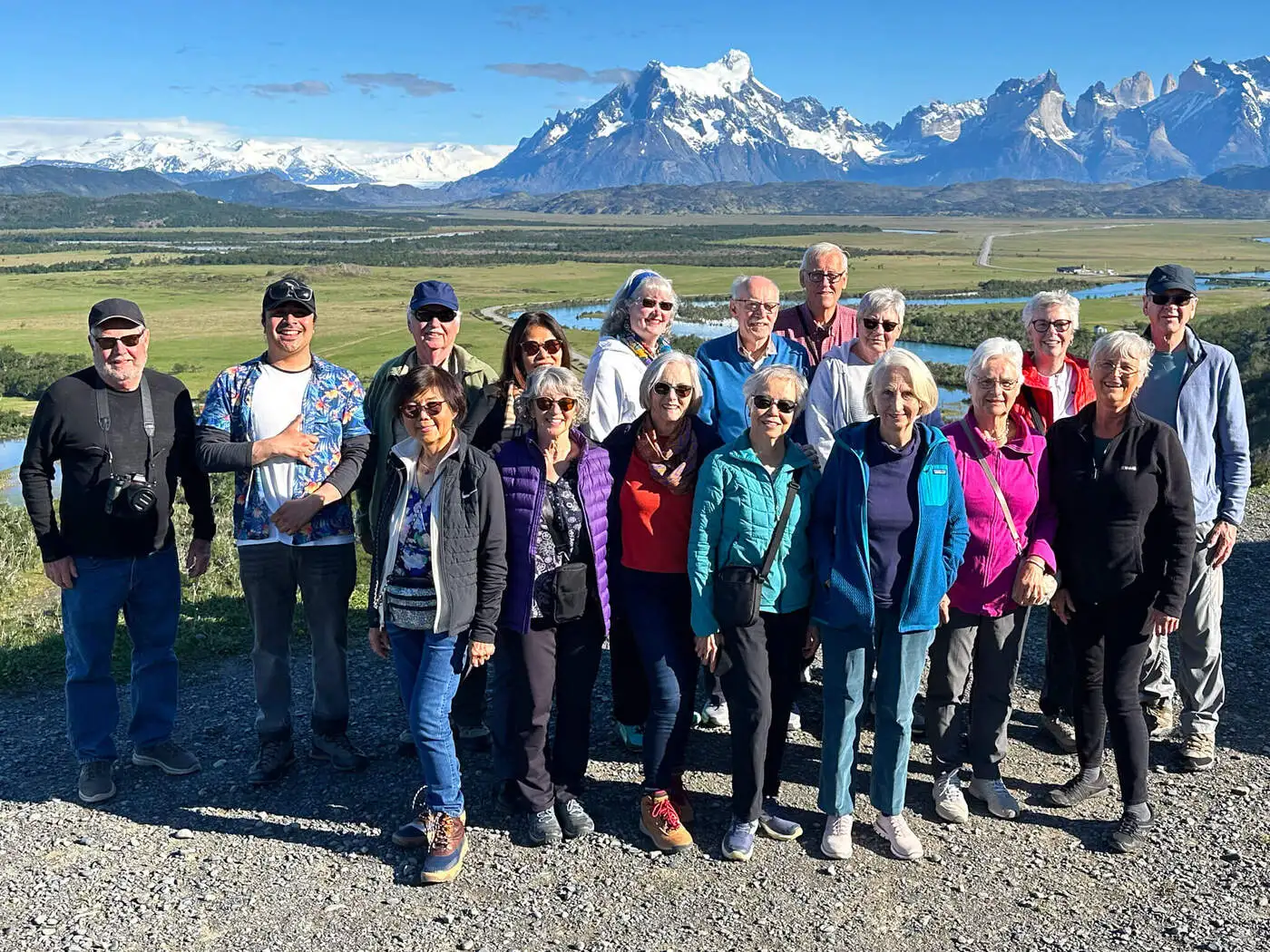
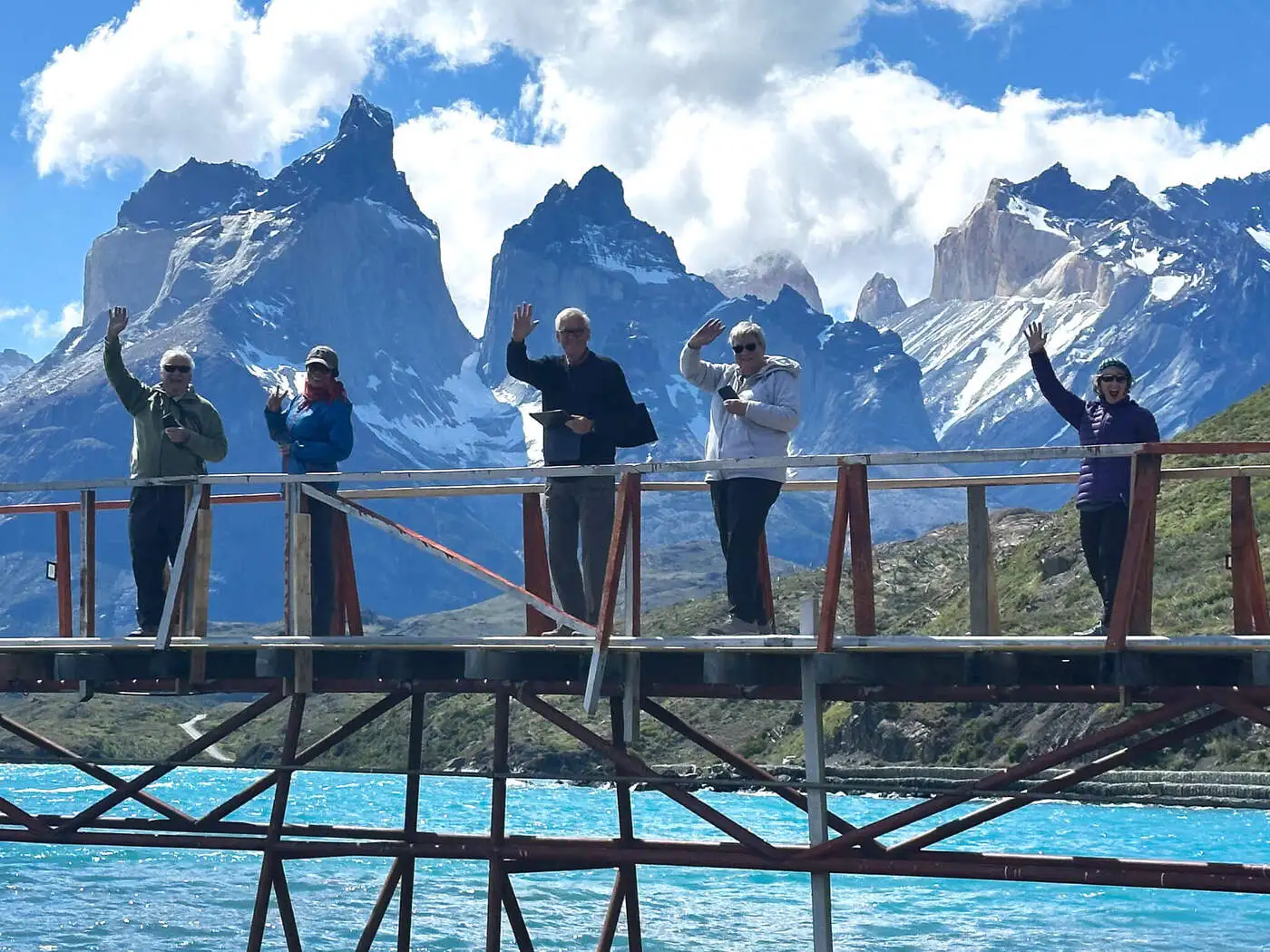
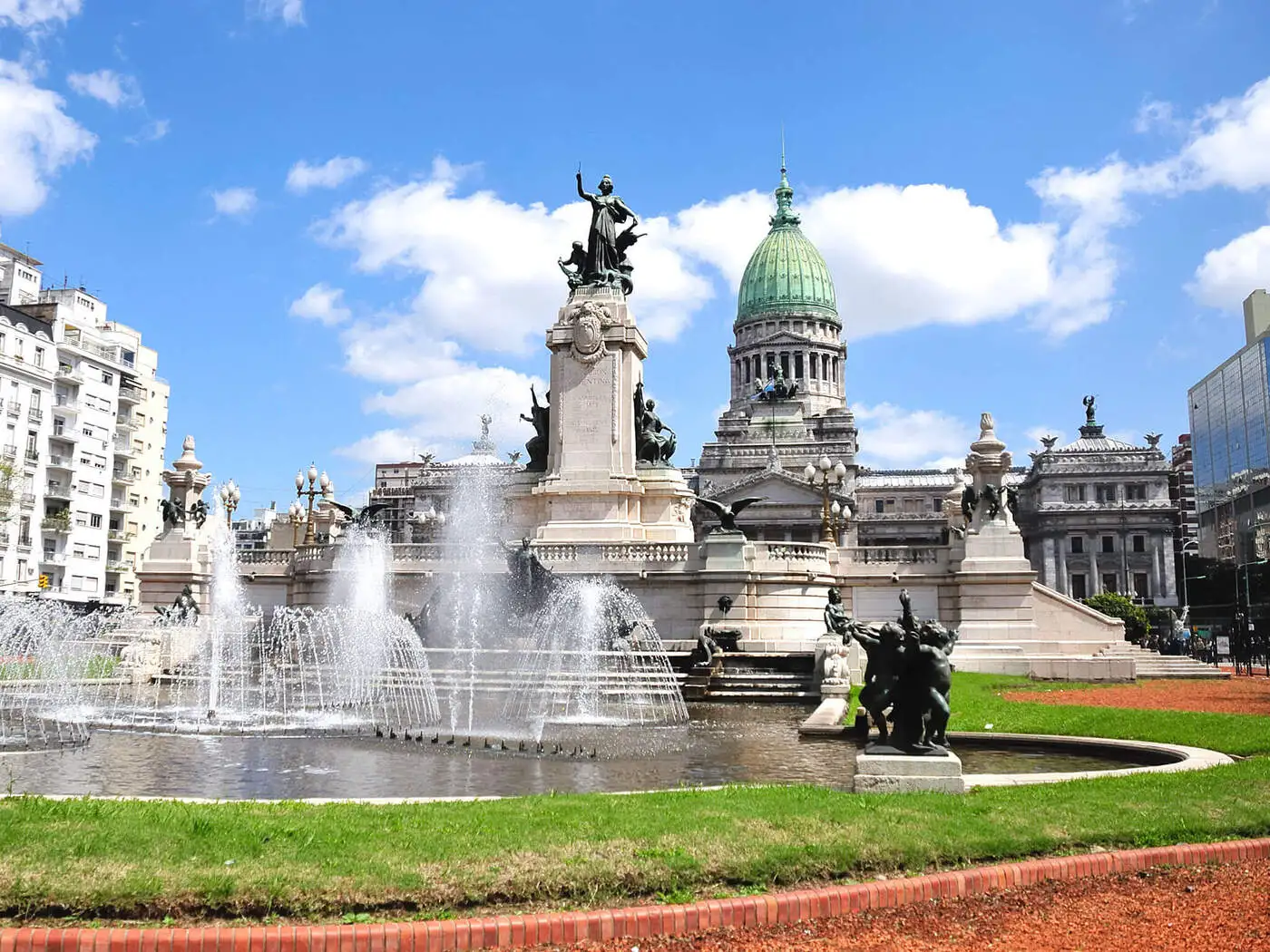
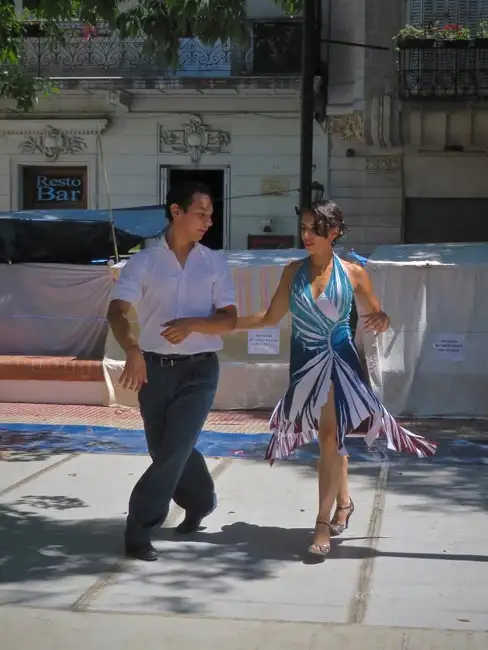
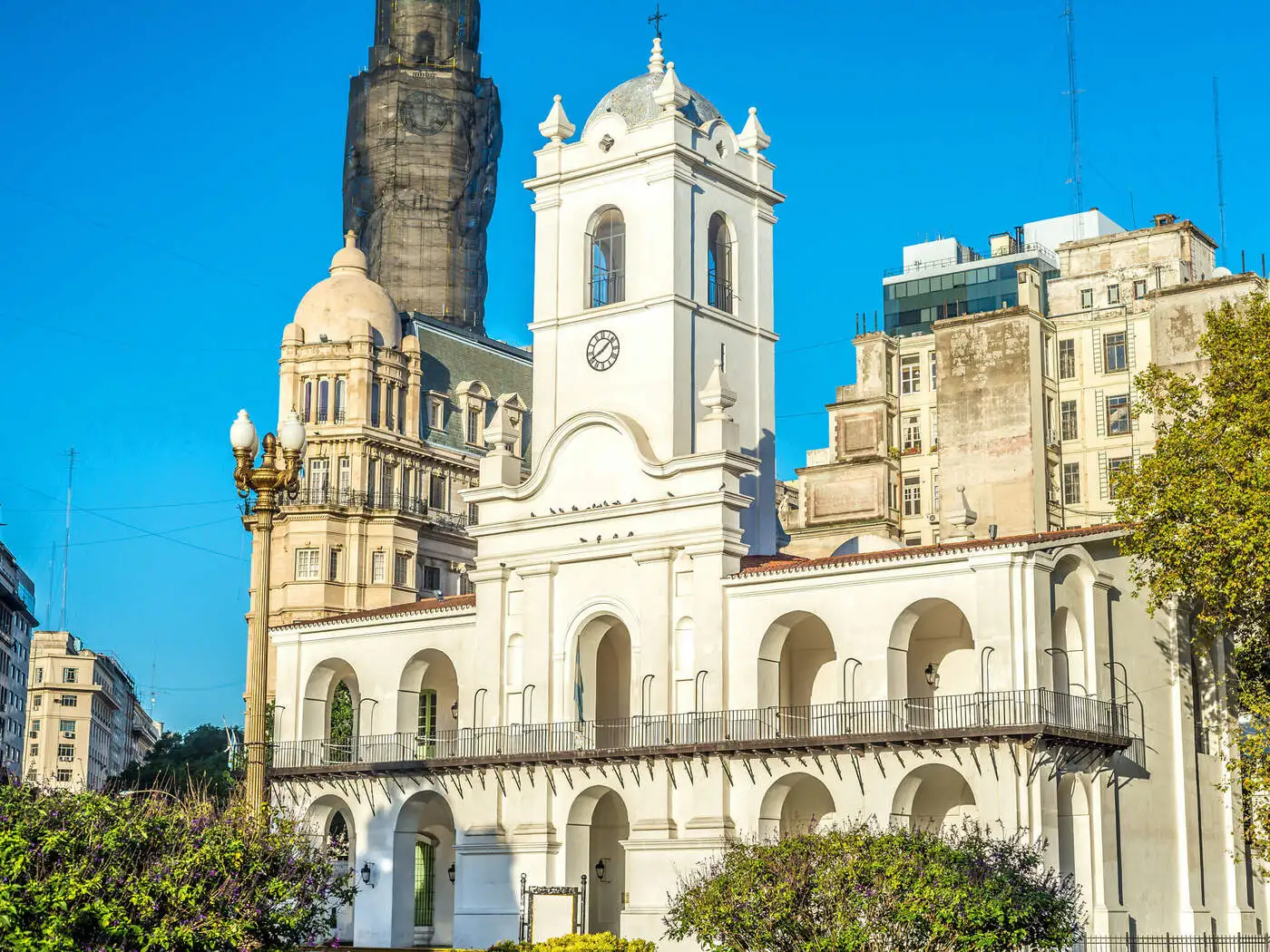
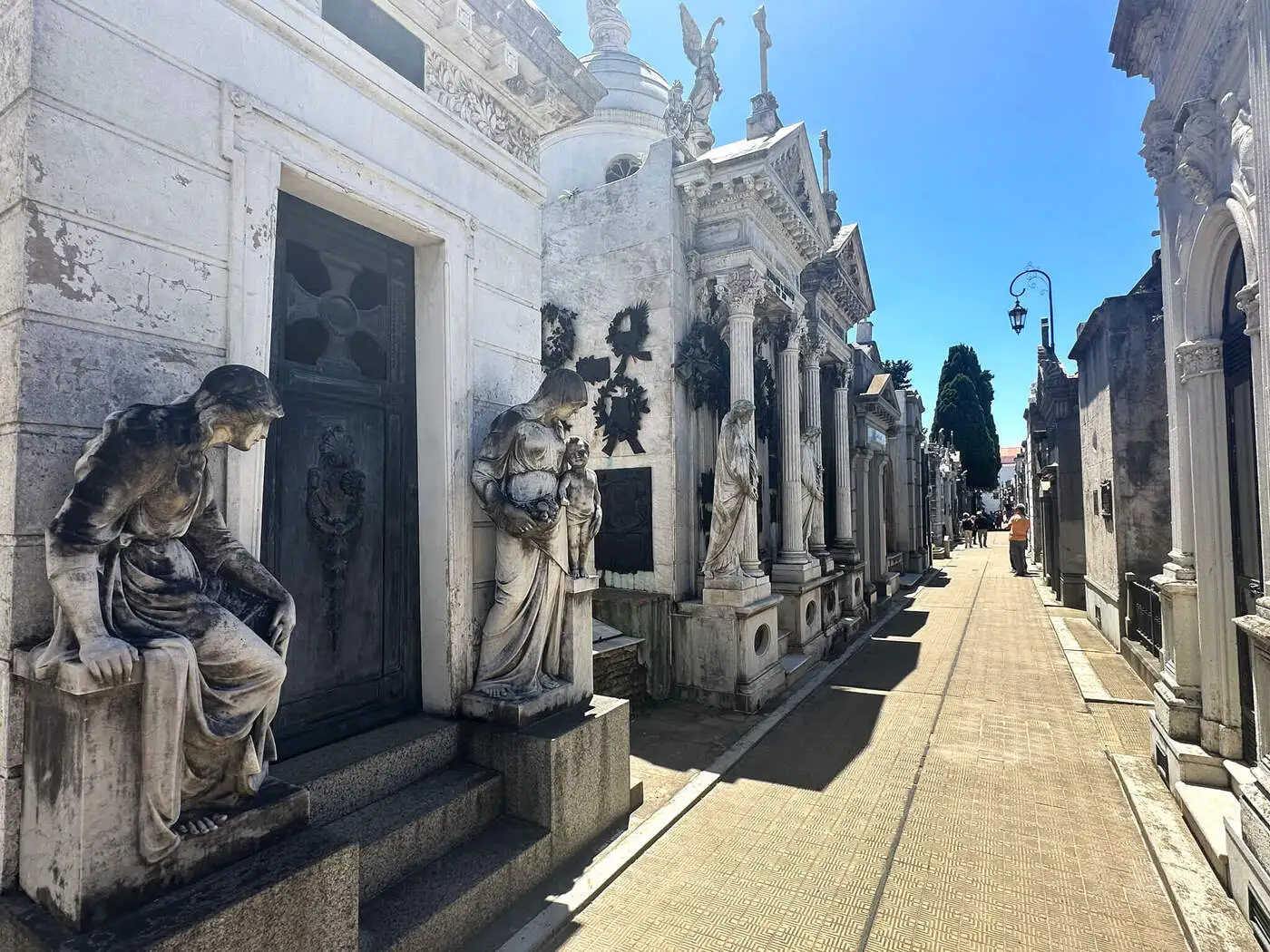
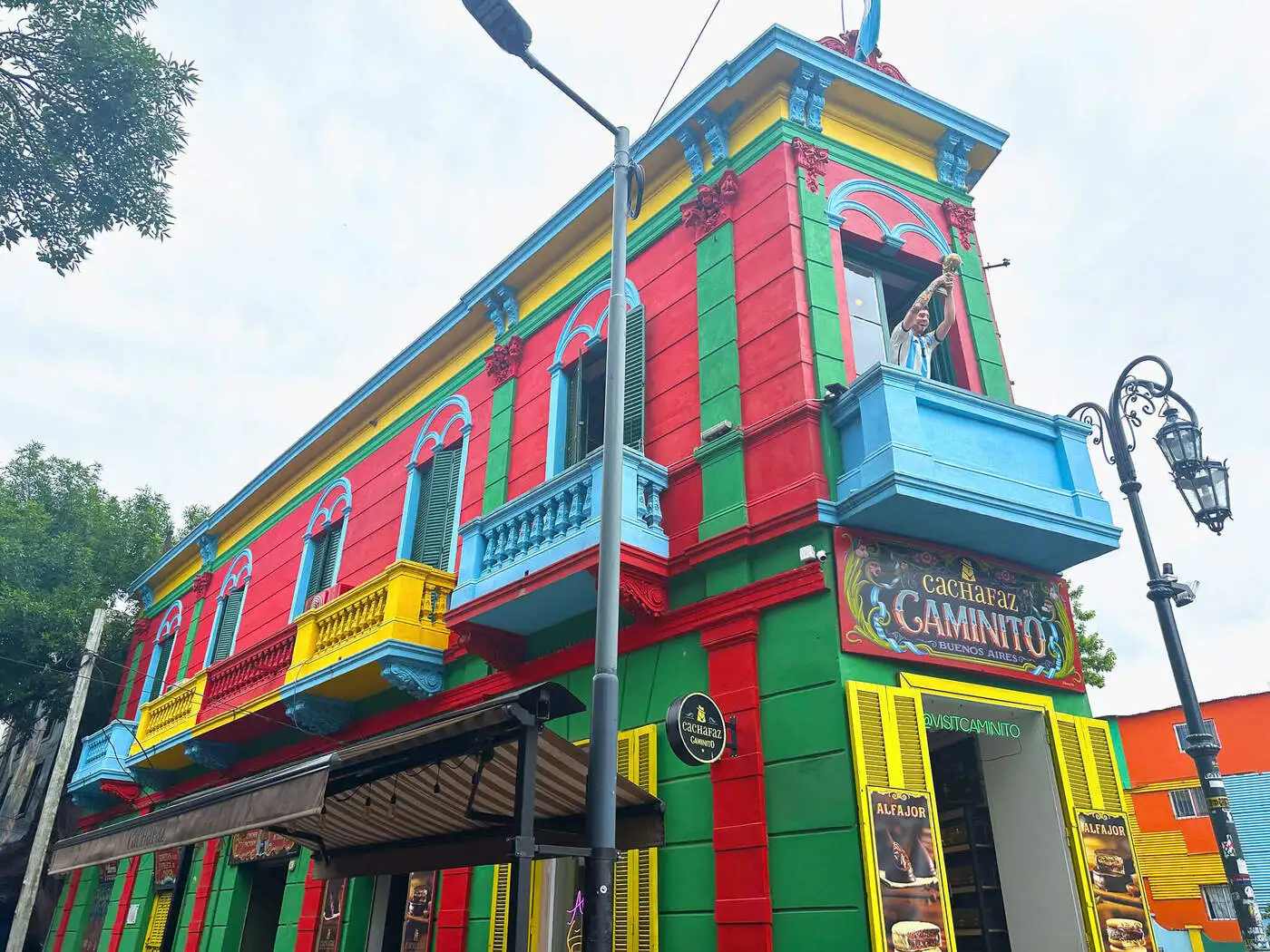
Excellent
Overall Rating
4.6
Extend Your Trip
This tour is part of a series that can be upgraded to make for a longer trip.
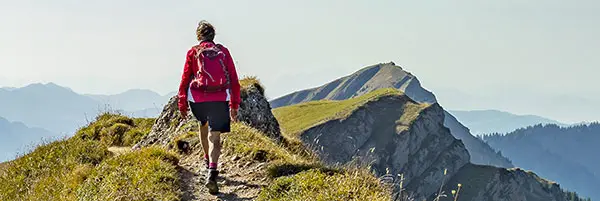
Fast and easy
Book this tour
Book your unforgettable adventure today! For any questions or advice, don't hesitate to contact us.
Have questions?
Contact Us
1-800-665-3998
- Final payment is due 90 days prior to departure.
- A non-refundable $1000 USD deposit is payable at the time of booking
- Optional Single Supplement: $1060 USD (number of singles limited).
This tour may require a mandatory single supplement charge of $530 USD if you join our share program and we are unable to pair you. - Transferring to another tour or tour date is only permissible outside of 120 days prior to departure and is subject to a $100 USD change fee. (Read our cancellation policy for more info.)
- In order to secure internal air tickets, an additional pre-payment of $1500 per person is due upon "guarantee," after which your deposit and pre-payment become 100% non-refundable.
Prices below are per person, twin-sharing costs in US Dollars (USD). Pricing does not include airfare to/from the tour and any applicable taxes. Get general information on flights to/from the tour.
Choose your departure date:
Frequently Asked Questions
- What is the maximum number of participants on a trip?Most of our tours carry a maximum of 18 participants; some tours (ie hiking tours) top out at 16. In the event that we do not achieve our minimum complement by our 90-day deadline, we may offer group members the option of paying a "small-group surcharge" as an alternative to cancellation. If all group members agree, we will confirm the trip at existing numbers; this surcharge is refundable in the event that we ultimately achieve our regular minimum. If the small group surcharge is not accepted, we will offer a refund of your deposit or a different trip of your choice.
- Can I extend my tour either at the beginning or end? What about stopovers?Yes, you can extend your tour either at the beginning or the end and we can book accommodation in our tour hotel. Stopovers are often permitted, depending on air routing. Stopovers usually carry a "stopover" fee levied by the airline.
- How do I make a reservation? How and when do I pay?The easiest way to make a reservation is via our website; during office hours, you are also more than welcome to contact us by telephone.
A non-refundable deposit is payable at the time of booking; if a reservation is made within 90 days, full payment is required. Some trips require a larger deposit. If international airline bookings require a non-refundable payment in order to secure space or the lowest available fare, we will require an increase in deposit equal to the cost of the ticket(s).
Early enrolment is always encouraged as group size is limited and some trips require greater preparation time.
Once we have received your deposit, we will confirm your space and send you a confirmation package containing your trip itinerary, any visa/travel permit related documents, invoice, clothing and equipment recommendations, general information on your destination(s), and forms for you to complete, sign and return to us. Your air e-tickets (if applicable), final hotel list, final trip itinerary, and instructions on how to join your tour, will be sent approximately 2-3 weeks prior to departure. - What about cancellations, refunds, and transfers?Please review our cancellation policy page for details.
- I am a single who prefers my own room. What is a single supplement?All of our tours have a single supplement for those who want to be guaranteed their own room at each location.
This supplement is a reflection of the fact that most hotels around the world do not discount the regular twin-share rate for a room by 50% for only one person occupying a room. Most hotels will give a break on the price, but usually in the range of 25-30% of the twin-share rate. This difference, multiplied by each night, amounts to the single supplement.
The conventional amount can also vary from country to country and some destinations are more expensive than others for single occupancy. In order to be "single friendly," the supplements we apply are not a profit centre for us and we do our best to keep them as reasonable as possible.
On most tours we limit the number of singles available, not to be punitive, but rather because many hotels allow for only a limited number of singles; some smaller hotels at remote locations also have a limited number of single rooms available.
Please note that most single rooms around the world are smaller than twin-share rooms and will likely have only one bed. - Do you have a shared accommodation program?Yes! If you are single traveller and are willing to share, we will do our best to pair you with a same-gender roommate. On most of our tours, if we fail to pair you, we will absorb the single supplement fee and you will default to a single room at no extra charge. At some destinations, however, where single rooms are not significantly discounted, or not at all, we may apply a "mandatory" single in the event that we cannot find you a share partner. This is usually 50% of the usual supplement, but can be as much as 100%. If applicable, this proviso will be noted on each tour page on this website, on your invoice, and in our tour date/price book (available for download under "Resources").
Please choose a departure date!
